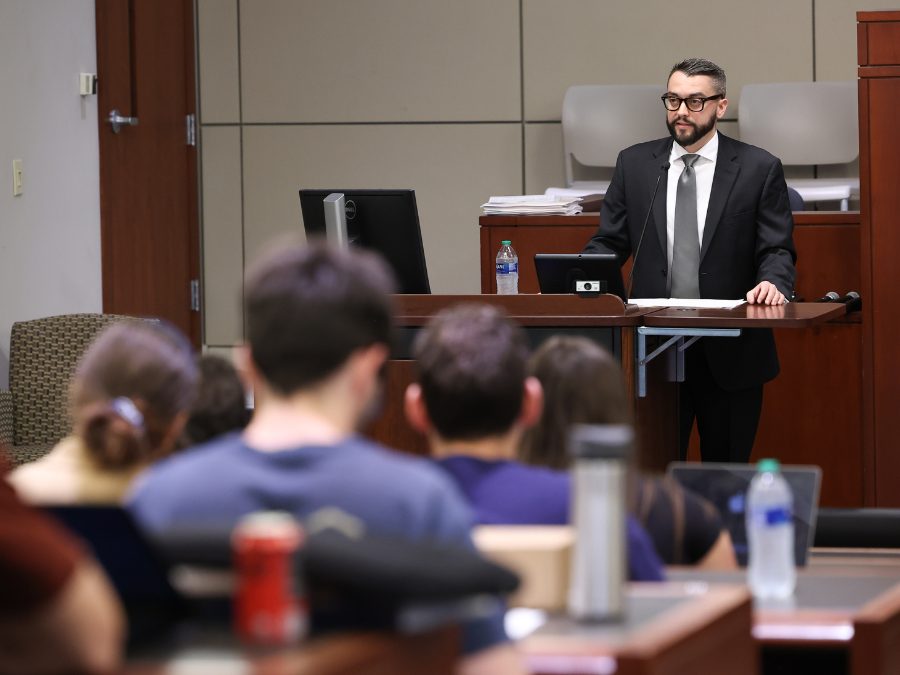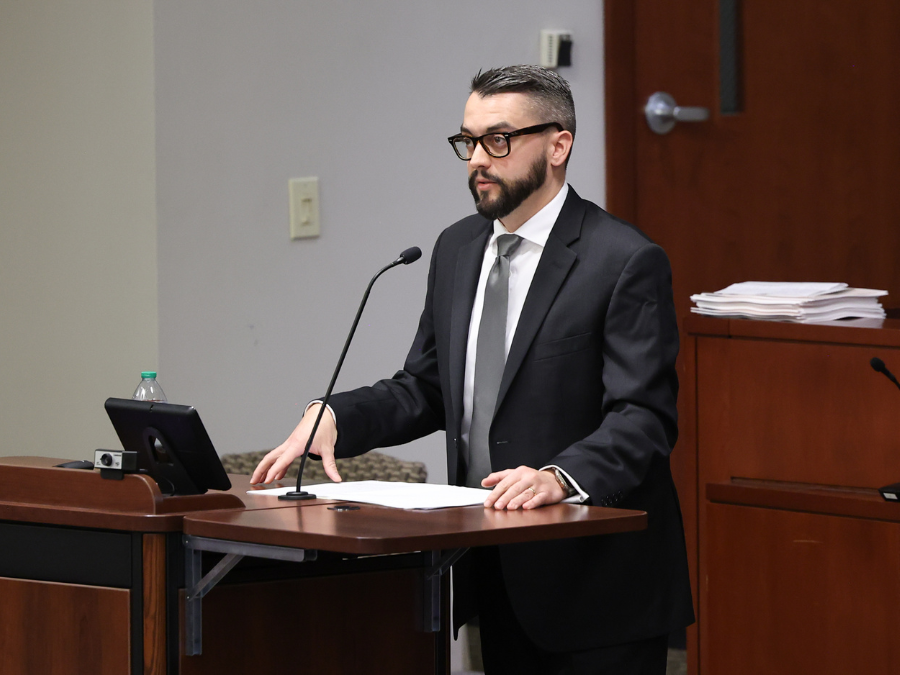Earlier this month, Cameron Norris ‘11 returned to his alma mater to speak to students about how law and policy impacts public institutions. Norris has achieved major success in his field, arguing in more than half of the country’s federal courts and twice at the U.S. Supreme Court. One pivotal case in which he played a role – and which is guaranteed to rewrite the norms of race in college admissions – is Students for Fair Admissions (SFFA) v. Harvard College, the 2023 case that effectively ended affirmative action. Norris argued on behalf of SFFA. Norris centered his discussion around this case, expanding on the weaknesses of affirmative action and what effects the decision will have on students and institutions going forward.

The annual Victor S. Johnson Lecture features a distinguished speaker who addresses the law and its relationship to public policy. The lecture is endowed by Victor S. (Torry) Johnson III ‘74 in honor of his grandfather.
He started by addressing the contradiction of affirmative action. “Any system that gives preferences based on race, even with the best intentions, has real negative costs,” he said. Despite affirmative action’s goal of promoting equality, Norris stated that, in many cases, it increases racial hostility and divides these communities. The implication, as he put it, is that colleges and universities have had an unchecked power to create a student body to their liking, one that aligns with their desired public perceptions and associations. Colleges want the public to see and associate them with.
Though unintended, another consequence of affirmative action is that “racial preferences also steal people’s accomplishments,” he said. According to Norris, it imposes a stigma that beneficiaries of affirmative action are less qualified and less deserving than non-beneficiaries. Norris cited a New York Times focus group study where white, Hispanic, and black students all shared the same sentiment– “affirmative action creates the impression that racial minorities don’t earn the right to be [at these schools].”
 Norris continued with specifics about SFFA v. Harvard. As early as 2012, there were concerns that Harvard College was upholding discriminatory practices against Asians in its admissions process. Norris and his team found that Asians were only negatively impacted by the “personal rating” coming out of the admissions office, even though they were given the same ratings as white students through interviews with Harvard alumni.
Norris continued with specifics about SFFA v. Harvard. As early as 2012, there were concerns that Harvard College was upholding discriminatory practices against Asians in its admissions process. Norris and his team found that Asians were only negatively impacted by the “personal rating” coming out of the admissions office, even though they were given the same ratings as white students through interviews with Harvard alumni.
Norris pointed out some criticisms of the decision. “College admissions officers will keep awarding racial preferences, but they’ll just now do so in ways that are harder to detect,” he said. Students could also incorporate their race in college essays, which would allow race to remain at the forefront of this issue. To the latter concern, Norris noted that it is completely legal for applicants to talk about their race and for officers to consider their essays– “the law bans preferences based on race; it does not ban preferences based on overcoming discrimination in your life or telling a compelling story about culture, family, or heritage,” he said.
Norris concluded with thoughts on what might come next regarding public policy and law in race-based admissions. This case has primary consequences, for current and upcoming college students, in addition to secondary consequences outside the context of education and universities. He notes that while there is no certainty about what admissions results will look like this year, based on other instances where affirmative action was ended, it is entirely possible that the number of black and Hispanic students will drop significantly but rebound in the coming years to higher numbers than before. Norris has confidence that colleges will comply with the rulings of this case, emphasizing the plenty of consequences they would face if they did not– lawsuits, investigations, and potentially loss of funding.
Outside of the university setting, Norris cites the “disturbing number of programs in our country that explicitly prefer certain races” in the name of pursuing diversity, like internships, scholarships, preferential mortgages, and business funding. Even though SFFA v. Harvard has no legal effect on these programs, he believes there is a practical one, which is leading to the end of these race-based programs.